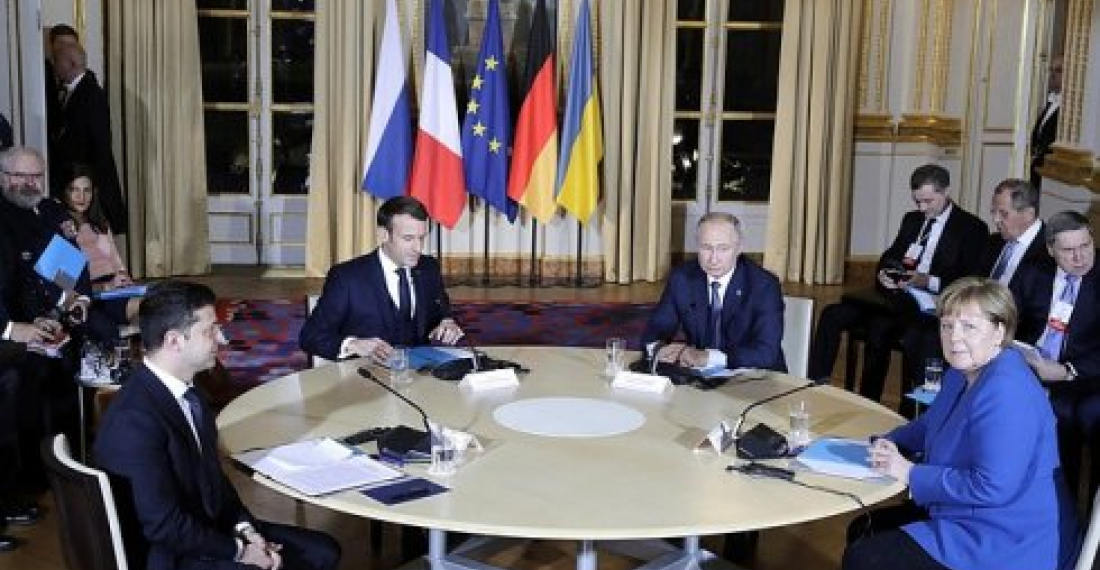Ukraine may be one step closer to peace after important talks held in Paris on Monday (9 December) attended by president Putin of Russia and president Zelinskiy of Ukraine. The talks were mediated by president Macron of France and Chancellor Merkel of Germany and were held in the format of the so-called "Normandy Four". Vladimir Putin and his Ukrainian counterpart Volodymyr Zelensky agreed to implement a cease-fire in eastern Ukraine by year-end.
"The sides commit to a full and comprehensive implementation of the cease-fire, strengthened by the implementation of all necessary cease-fire support measures, before the end of the year 2019," according to a joint communique.
The four-way summit with the leaders of Germany and France also led to all sides agreeing to implement an "all for all" prisoner exchange by the end of the year.
Zelenskiy, who met Putin in person for the first time, has made resolving the conflict in the country's east a priority of his presidency.German Chancellor Angela Merkel said the outcome of the meeting gave renewed momentum on reviving a 2015 peace agreement for eastern Ukraine that has stalled.
"I say very openly, we have a lot of work to do but my feeling from this meeting here today is that there is goodwill to resolve difficult questions," Merkel told a joint news conference with the leaders of France, Ukraine and Russia."
Commonspace.eu political editor said in a comment that "this is not the begining of the end of the Ukraine crisis sparked by Russia's intervention in Ukraine and its annexation of Crimea in 2014, but it may be the begining of the begining. Full credit must go to the leaders of France and Germany who invested time and political capital to ensure that the two sides get together and are able to focus on some positive steps. This level of committment should be an example for how to deal with other conflicts in the European neighbourhood. But regardless of the modest success of the Paris talks Ukraine remains a serious obstacle for a renewal of EU-Russia relations. If, as it appears, President Putin is keen to see a restart in these relations, Russia needs to back track much more substantially in Ukraine than the small steps achieved in Paris. It may be willing to do so in the Donbass, but the chances that it will do so in Crimea are negligible. All sides must now ensure that what has been agreed in Paris is implemented fully so that the process of entangling the rest of the complex Ukraine problem may continue."
source: commonspace.eu
photo: The meeting of the Normandy Four leaders in Paris on 9 December 2019.






